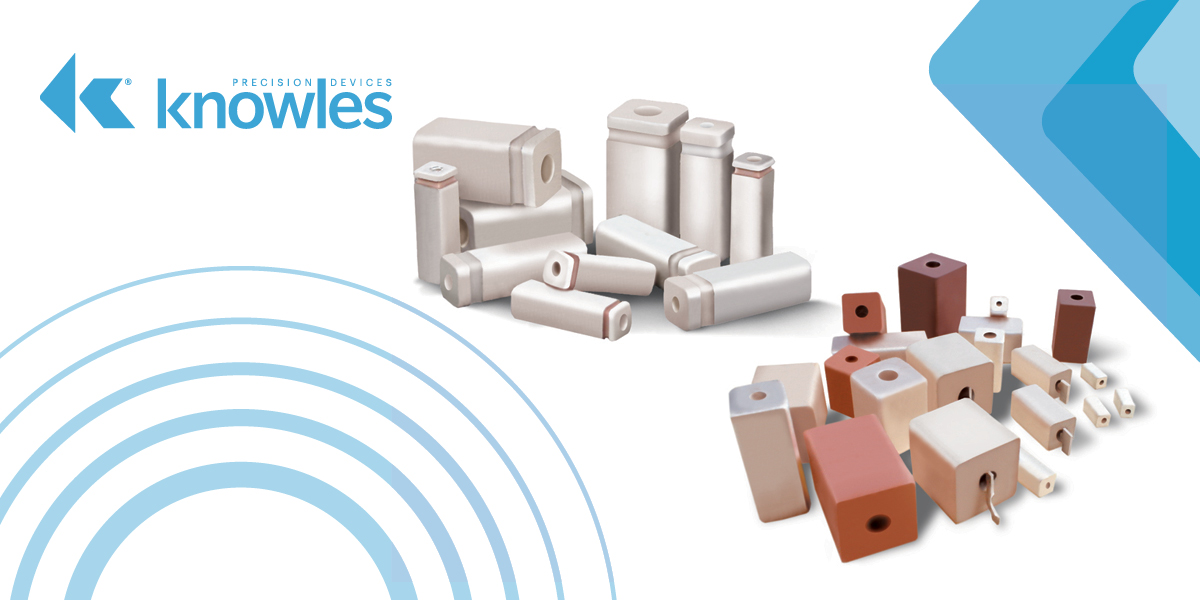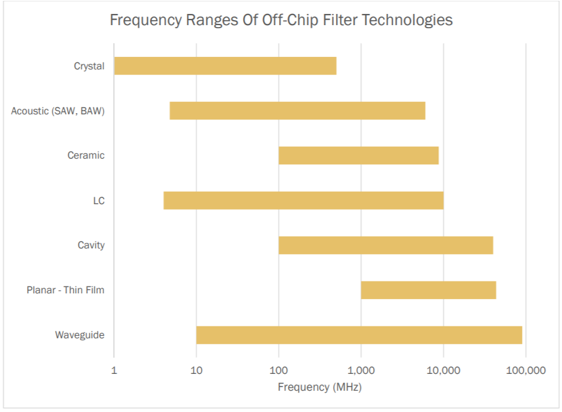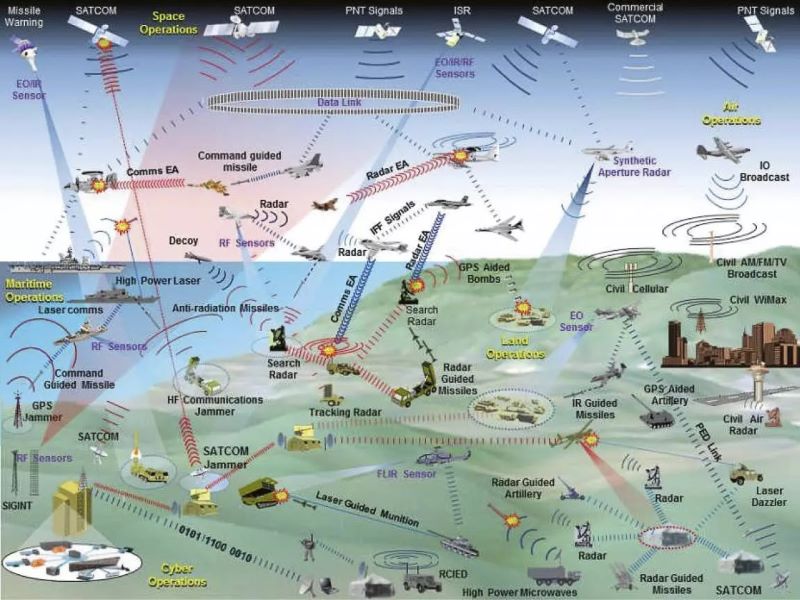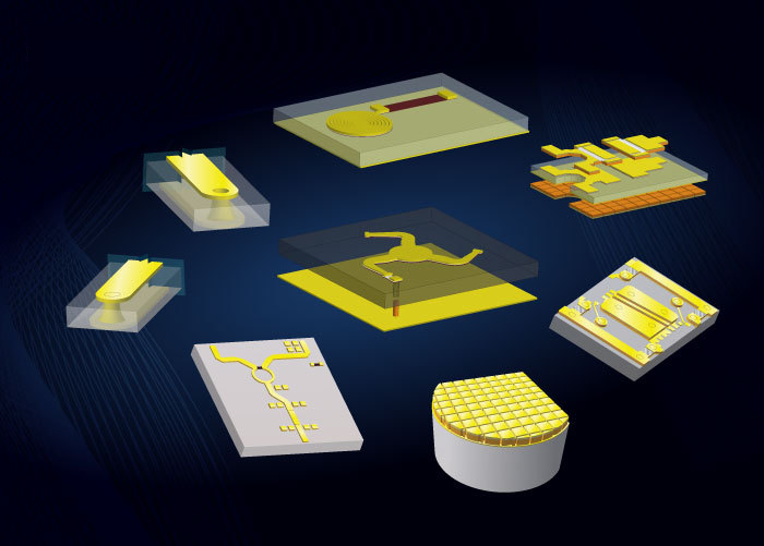At this point, you’ve likely seen a slew of mainstream news articles about 5G causing safety concerns around air travel. In fact, ahead of the rollout of new 5G services from major US telecom companies including Verizon and AT&T on Jan. 19, 2022, many international airlines canceled or delayed flights to major US airports where they believed 5G signals could possibly interfere with the radar signals required to properly operate landing equipment on their planes.
Striking a Balance for Spectrum Needs: 5G Communications vs. Aircraft Altimeter Operations
Topics: RF and Microwave, Military and Aerospace, Filtering
Take Advantage of Open-Source RF Analysis Toolkits
At Knowles Precision Devices, we truly do love all things RF. While we are focused on using our expertise in ceramics and thin film manufacturing to innovate on our high-performance filters, our engineers also enjoy keeping up with the trends impacting the entire RF “ecosystem.” This includes dedicating time to experimenting with various open-source RF modeling and analysis tools that we think our potential non-design engineer customers might find useful. One open-source RF and microwave network analysis tool we have been playing around with lately that we feel does a particularly good job is scikit-rf, which is based on the Python programming language.
Topics: RF and Microwave
Planar Filter Technology for Millimeter Wave Applications
The advent of fifth generation (5G) communications brings an increased interest in Millimeter Wave (mmWave) technologies. One of the biggest technology challenges engineers face with 5G is how to implement sufficiently high-performance RF filtering in mmWave applications. Given the frequencies involved a distributed element planar approach, such as using Microstrip or Stripline, is often ideal for constructing resonators and filters.
Topics: RF and Microwave
Expanding Our Filter Technology Offerings to Serve Low-Frequency Applications
This year, Knowles Precision Devices acquired Integrated Microwave Corporation (IMC), a leader in the design and manufacture of custom precision RF microwave filters and multiplexers for the aerospace, defense, and communications industries. This acquisition was particularly exciting as our two companies share deep expertise in engineering high-performance ceramics for RF and microwave applications. And, like Knowles Precision Devices, IMC also has a long heritage of supplying highly reliable components for mission critical space devices that includes applications such as the MARS Orbiters, MARS Landers, and MARS Rovers.
Topics: News and Events, RF and Microwave, Military and Aerospace
RF Filtering Techniques for Millimeter Wave Applications
The millimeter wave (mmWave) part of the electromagnetic spectrum is at the high end of the microwave region, which spans ~300 MHz to 300 GHz, and is usually taken to mean frequencies from ~30 GHz to 300 GHz and wavelengths in the range of 1mm to 1cm (Table 1). This dramatically increases available bandwidth, thus expanding achievable data rates, which makes these frequencies extremely interesting to teams around the world working on fifth generation (5G) communications.
Topics: 5G, RF and Microwave
Making a Reduced Form Factor, High-Performance Switch Filter Bank a Reality
Many critical military operations around the world are increasingly relying on a variety of electronic warfare devices for a range of threat suppression, detection, and neutralization activities. This means that numerous devices operating across the RF spectrum including low-frequency devices in the VHF band and mmWave devices in the Ka band are necessary. As shown in Figure 1, when many electronic warfare devices are in use, a large number of signals are being sent and received and crossing paths. Therefore, it’s easy for any one of these devices to experience issues with interference if proper filtering techniques are not in place.
Topics: RF and Microwave, Military and Aerospace, Filtering
Knowles Acquires IMC to Expand Filtering Offering from the VHF to Ka Bands
We are pleased to announce that the Knowles Corporation recently acquired Integrated Microwave Corporation (IMC), a leader in the design and manufacture of custom precision RF microwave filters and multiplexers for the aerospace, defense, and communications industries. With this acquisition, the Knowles Precision Devices Microwave group can now offer a complete range of RF and microwave filtering solutions that support applications from the VHF to the Ka band. In addition to the small, temperature-stable filters our customers have come to know us for, we can now deliver ceramic and cavity filters for lower frequency and/or higher power applications. The full range of the IMC filter technologies we now offer is shown in the graphic below.
Topics: News and Events, RF and Microwave
Webinar: Addressing Filtering Challenges in Digital Broadband Receivers for Electronic Warfare Applications
Today, electronic warfare applications need to detect a wide variety of signals ranging from UHF communications to GPS and other data signals in the L band to high-frequency radar signals that can fall in the X, S, or K bands. Therefore, these receivers need to operate across an extremely wide range of bandwidths to pick up and understand signals anywhere from 300MHz to 20GHz and beyond. However, a basic general wideband antenna isn’t sufficient for these applications because selectivity is needed to determine what you are actually listening to. Additionally, as if the task of designing an ultra-wideband receiver with selectivity wasn’t challenging enough, RF designers are simultaneously facing pressure to reduce the size, weight, and power (SWaP) of these applications as well.
Topics: RF and Microwave, Military and Aerospace, Filtering
Build-to-Print Basics Part 12: Custom Microwave Components
To provide a better understanding of build-to-print in general and the breadth of our offerings, as well as how our thin-film technology can benefit your applications, we’ve put together a Build-to-Print Basics series. In part 12, we tie everything we’ve discussed so far together and provide more specifics about how we use the processes and options detailed throughout this series to create the custom microwave components you need.
Topics: RF and Microwave, Build to Print
As the RF spectrum becomes more crowded and the number of bandwidth battles grows each year, RF designers are looking for innovative designs that minimize interference while also increasing signal transmission power. Since phased arrays can efficiently maximize gain and signal directivity and minimize interference for both Tx and Rx, adoption of this architecture by RF designers is growing. This means RF designers are also on a quest for phased array filtering options that can help meet the size, weight, and power (SWaP) needs and performance demands required by today’s RF applications. As a result, our engineers have spent a significant amount of time working on an innovative approach that can meet this seemingly impossible combination of requirements.
Topics: 5G, RF and Microwave, Military and Aerospace, Filtering










